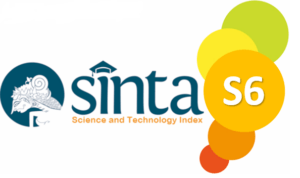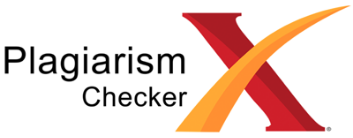IMPLEMENTASI KURIKULUM MERDEKA DI SEKOLAH DASAR SDN 13 BATANG GASAN KAB. PADANG PARIAMAN
DOI:
https://doi.org/10.31933/ejpp.v4i1.1036Keywords:
Curriculum implementation, Innovation, Creativity, Independent curriculuAbstract
The curriculum has a central role in the world of education, serving as a guideline for designing and implementing the learning process. guidelines for designing and implementing the learning process. This paper illustrates the importance of curriculum in directing education, as well as improve the quality of learning. With a focus on the curriculum of SD Negeri 13 Batang Gasan, which is located in Batang Gasan, Padang Pariaman Regency, the diversity of students and the environment is an important factor in the development of education services. educational services. Diversity is considered an asset and a challenge that motivates the school to realize its vision with a commitment to guide students with compassion. This curriculum emphasizes active learning, creative, effective and fun, utilizing existing facilities and potential. The values of national culture and character, such as religion, honesty and tolerance, are integrated into all educational activities as part of the school's vision, are integrated in all educational activities as part of the school culture. Through the curriculum, SD Negeri 13 Batang Gasan is committed to implementing educational programs according to the characteristics, potential and needs of students. The curriculum development process involves the entire school community in coordination with stakeholders around the school. This means that the curriculum is not only a formal tool, but also the main foundation in achieving the goals of quality education and the main foundation in achieving the goals of quality education and adaptive to the needs of learners, adaptive to the needs of students.
References
Bentri, A., Adree, O., & Putra, A. (2014). Implementasi Kurikulum 2013 di Sumatera Barat. Jurnal Penelitian Pendidikan, 5(1), 88–99. https://doi.org/10.4324/9781315853178
Bentri, A. (2017). A Model Of Local Content Disaster-Based Curriculum At Elementary Schools. International Journal of GEOMATE, 13(40), 140–147.
Candra, A., Sabandi, A., Syahril, S., & Zikri, A. (2020). Kontribusi Kepemimpinan Kepala Sekolah dan Insentif terhadap Motivasi Berprestasi Guru. Jurnal Basicedu, 4(3), 690–695. https://doi.org/10.31004/basicedu.v4i3.379
Diandra, W., Marsidin, S., Sabandi, A., & Zikri, A. (2020). Analisis Supervisi Kepala Sekolah Dalam Penyusunan Rpp Dan Pelaksanaan Model Saintific Di Sekolah Dasar. 4(2), 443–452.
Hidayat, Sholeh. 2013. Pengembangan Kurikulum Baru. Bandung: PT Remaja Rosdakarya
http://www.duniapelajar.com/2014/07/16/pengertian-dokumentasi-menurut-para-ahli.
Moleong, Lexy J. 2002. Metodologi Penelitian Kualitatif. Bandung: Remaja Rosdakarya
Suarni, N., Taufina, & Zikri, A. (2019). Literasi Membaca Untuk Meningkatkan Karakter Positif Siswa Sekolah Dasar. Jurnal Basicedu, 3(2), 524–532.
Sugiyono. 2013.. Metode Penelitian Pendidikan: Pendekatan Kuantitatf, Kualitatif, dan R&D. Bandung: Alfabeta.
Tim Pengembang MKDP Kurikulum dan Pembelajaran. 2011. Kurikulum & Pembelajaran. Jakarta: PT Rajagrafindo Persada.
Vivi, L., Fitria, Y., Miaz, Y., & Ahmad, Z. (2020). Pembelajaran IPA Dengan Strategi Pembelajaran Inkuiri Untuk Meningkatkan Keterampilan Proses Sains Dan Motivasi Belajar Siswa di Sekolah Dasar. Jurnal Basicedu.
Weriyanti, Firman, Taufina, & Zikri, A. (2020). Pengembangan Bahan Ajar Tematik Terpadu Dengan Strategi Question Student Have Di Sekolah Dasar. Jurnal Basicedu, 3(2), 524–532. https://doi.org/10.31004/basicedu.v4i3.416.
Downloads
Published
How to Cite
Issue
Section
License
Penulis yang mempublikasikan manuskripnya di jurnal ini menyetujui ketentuan berikut:
- Hak cipta pada setiap artikel adalah milik penulis.
- Penulis mengakui bahwa Ekasakti Jurnal Penelitian & Pegabdian (EJPP) berhak menjadi yang pertama menerbitkan dengan lisensi Creative Commons Attribution 4.0 International (Attribution 4.0 International (CC BY 4.0) .
- Penulis dapat mengirimkan artikel secara terpisah, mengatur distribusi non-eksklusif manuskrip yang telah diterbitkan dalam jurnal ini ke versi lain (misalnya, dikirim ke repositori institusi penulis, publikasi ke dalam buku, dll.), dengan mengakui bahwa manuskrip telah diterbitkan pertama kali di Ekasakti Jurnal Penelitian & Pegabdian (EJPP).


.png)

.png)
_.png)














